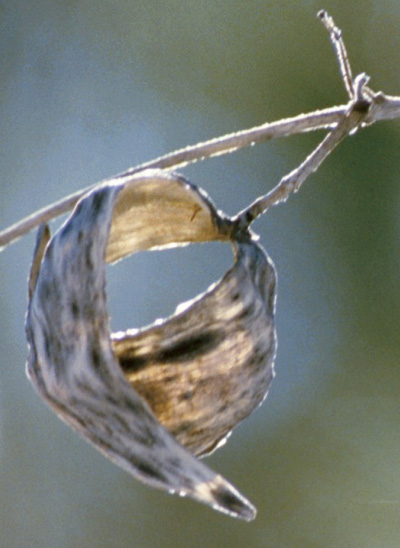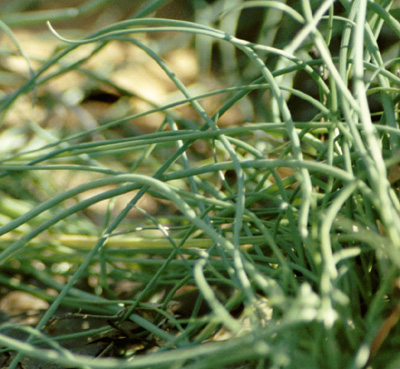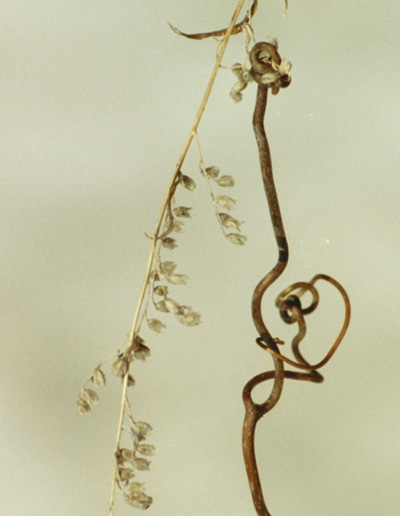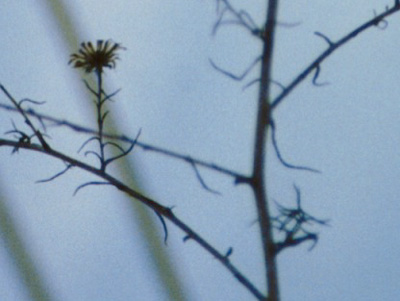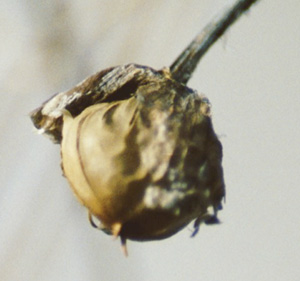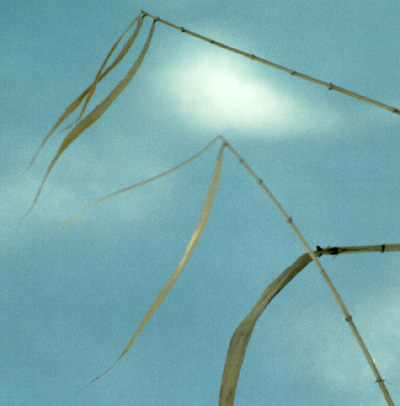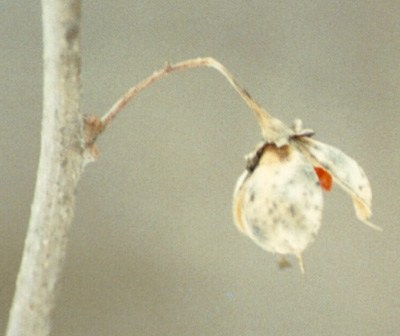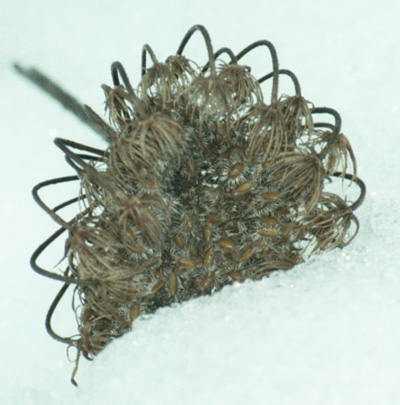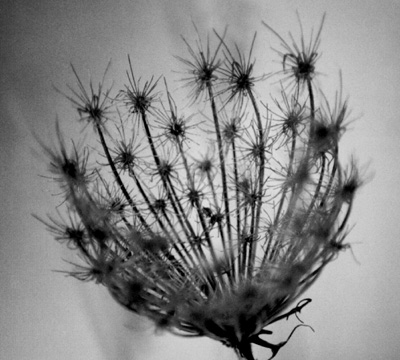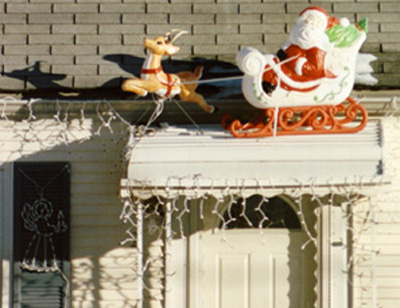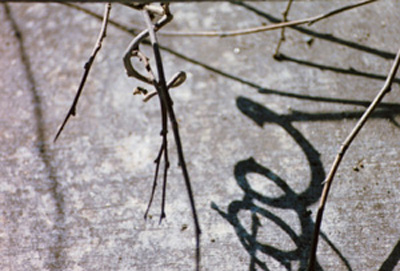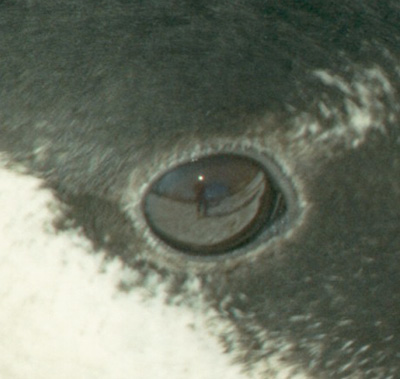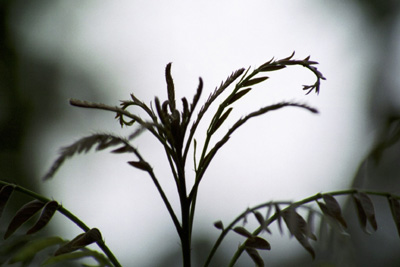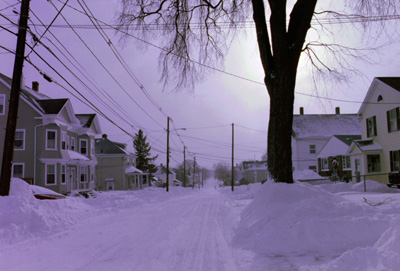
Either Bus 70 was late or I had misread the schedule. By the time its headlights crested Main Street's long incline, my feet, pinched in their too-narrow Payless vegan boots, and steeped half and hour in slushy roadside water, were nearly numb.
It was just past rush hour on the eastbound Boston route. The bus was hot and half full. I sat down on a small aisle-facing bench near the back of the bus, a three seater. A woman was sitting one seat away, obliquely, her legs -- long, thick, and packed into impossibly tight jeans -- were crossed. She jiggled the top leg, cantilevered into the space between us, continuously, nervously. I peeked at her from under my hat. She was clutching a cell phone in one mittened hand. Her face was pale and flat. She looked annoyed, almost angry. She crossed and recrossed her legs.
The bus smelled of wet wool, oil and worse. The man in the seat in front of me was somnolent and flatulent. His head, cushioned by his thick, wool watchcap, rested, bouncing a little, on the window. Other sour, human smells circulated on competing drafts of hot and freezing bus air.
The molded plastic seat was cold and hard. The composite human for which it had been designed did not included my somatotype, and, no matter how straight or slouched I sat, the knobs of my spine knocked uncomfortably against its back. I sat there, perched and prim, my backpack on my lap, and looked straight ahead. The reflection of my face floated in the dark window, bisected by a bar. Fronds of gray hair stuck out on either side. I changed the depth of field and looked out at the night.
The city streamed past. I never tire of the sight. I wished for my camera, and for chops enough to capture what I was seeing. Traffic, smears of neon, shops -- tiers of doughnuts in a bright bakery, a turquoise pick-up truck, suspended midair and surreal in an auto show room, clothes spinning in banks of silver washers in a laundromat. I thought of the people coming out to wash their clothes -- the weight of wet cloth, the smell of hot soapy water, the whirr of the machines -- and was moved by this necessary, small human activity as if it were some kind of sacrament.
Then we passed the old Arsenal, now brightly retrofitted for offices and businesses, where my dear, late Uncle Peter -- amateur philologist, botanist and photographer -- had worked in World War II. I queried the air for his ghost.
Sensei I called, inwardly. There was no clear reply. Just a little perturbation. A little dip in space time, barely distinguishable from the lurching of the bus. Subtle as the footfall of an ant in an earthquake.
Even the mall -- a typically, vulgarly awful one, but done up to match the old arsenal's industrial brick -- seemed beautiful, set back deeply in its parking lot, overwritten with strokes of broken neon.
The bus pulled up to a stop and a teenage couple boarded. Each had a cell phone affixed to their belt in a little holster, and they were talking animatedly to one another, close pals, lovers maybe. They sat across from me. She bumped my toe; we both apologized. He was voluble, flamboyant, a pink gem in each ear. She was neatly, even drably dressed, and addressed him in a tone that was alternately fond and scolding. They fussed with their cell phones, which bleeped and played little snatches of music.
She loves you, yeah yeah yeah . She called her mother. He turned his over and over in his hands, admiring it, almost preening it.
I noticed how many passengers clutched cell phones. I listened, a little drowsy now, to the comforting, ambient conversations of the strangers around me.
I'm on the bus I'm coming home now !
All the union and reunion ! I sat there, ever the solitary, my own cell phone dormant in my backpack. Whom would I call ? What would I say ? And why would I want to ? I like the mild irresponsibility of being in transit, beholden to nothing but getting from place to place. Incommunicado, unreachable, out of the loop. A stranger's stranger, if not walking, at least riding the earth.
The bus jerked to a halt. A large, swarthy, ill-shaven man carrying several bags got on and approached, looking from side to side for a seat. I glanced his way, and moved left as if to say:
sit here . He sat, heavily, then leaned forward and adjusted his bags. His leg, in loose, wide-waled tan corduroy, was warm and thick against mine, both unnerving and reassuring. I could no longer see the nervous, jiggling woman. I glanced at the man. His grizzled face seemed pre-occupied, even sad.
I looked back at the window. We were in Cambridge now, approaching Central Square. I peered down the narrow sidestreets, little more than alleys, still snow-filled. The crooked porches of the old wood duplexes and triple deckers were still draped with christmas lights; scattered lit windows, half occluded with blinds and shades, allowed glimpses of cluttered rooms. A few blocks later there was a subtle, palpable shift. The world had been
rehabbed. The windows were wider, the lit rooms more elegant and austere: bookshelves, plants, something on a wall in a frame.
Then I heard a clatter. The pink-gemmed boy had dropped a pocketful of whatnots on the floor. He laughed, swore. She giggled. He reached down, then extended one long leg under the seat in front to retrieve a little square object. I watched his foot strain toward it, snare it, pull it toward him. He leaned, and, with a small crow of triumph, picked it up.
The girl turned to him in mock horror.
I hope you're not going to eat that !
With a devilish look, he unwrapped a small, pink sweet and popped it into his mouth.
The man beside me, who had also been watching the little drama, turned to me, his face now illuminated, radiantly transformed, by a smile of absolute delight. Conspiratorial, and in a thick Spanish accent, he whispered:
Sugar !
The bus pulled into Central Square and I got off.
How lovely is thy dwelling place, oh Lord.


